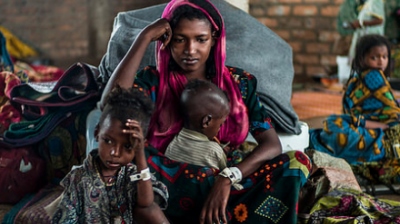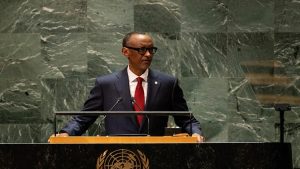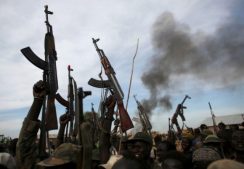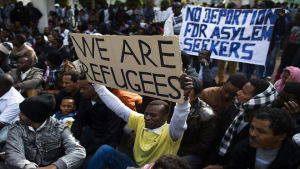Sudanese refugees who fled fighting in Darfur are going back home from neighbouring Central Africa Republic (CAR) where they have lived for the last 10 years.
Conflict in Darfur began in 2003 when mainly non-Arab tribes took up arms against Sudan’s Arab-led government. Up to 300,000 people were killed and millions have been displaced. About 3,500 Darfuris fled into CAR in 2007.
Now, 1,500 of them have been taken back home as part of a UNHCR voluntary repatriation exercise that started on December 12 last year. Ismael Mahamat, a student, was among the last group of 45 to take a flight home.
“I thank the government and the people of Central Africa for hosting the Sudanese refugees,” he said.
UNHCR says the security situation in Darfur has improved following a disarmament process and an ease in fighting after Sudan announced short-term truces in Blue Nile and Kordofan regions.
Sudanese President Omar al-Bashir also extended a ceasefire ahead of a decision in October by the United States to lift long-standing trade sanctions against his country.
Bashir is wanted by the International Criminal Court on charges of orchestrating genocide in Darfur.
“I say big thank you to all Central Africans, thank you very much I have stayed in their country for 10 years without having any worries. I thank them,” said Aroun Hamat, a trader returning to Darfur.
CAR faces its own security challenges. Thousands have died and a fifth of Central Africans have fled their homes since conflict broke out when mainly Muslim Seleka rebels ousted President Francois Bozize in 2013, provoking a backlash from Christian anti-balaka militias.
Last year clashes between rival militias central region of Bambari, killing dozens of people and trapping Sudanese refugees living in the Pladama Ouka camp. UNHCR said they were at “high risk of attacks”.
Despite the risks in CAR – some Sudanese refugees were not ready leave just yet.
“The people who left wanted to go. I have suffered a lot in CAR. It was the same in Sudan. There was peace, we would go about our business, our children went to school without a worry but then two or three years ago everything fell apart. The Seleka came and destroyed everything and there was no room for us. The UNHCR saved us. Here there is room for us. We can’t go to market but at least our children can go to school and that is why I decided to stay here, to stay with my children and wait until total calm has returned to my country before I decide to leave,” said Mariam Abakar, a Sudanese refugee.
UNHCR says it will continue to support those who have chosen to remain behind.
“For UNHCR, voluntary repatriation is a sustainable, long-term solution. It is not the UNHCR that is forcing them to leave, they themselves came to us saying they wanted to leave and for those that are staying, we are here to listen as there are shepherds, farmers and traders amongst them,” said Lydia Gebrekristos, UNHCR head of office in Bambari.
There are 650,000 Sudanese refugees living in Chad and South Sudan according to UN estimates.
While the security situation in Darfur is said to have improved, sporadic fighting remains a concern as there is no conclusive political agreement between armed groups.
Meanwhile in CAR, nearly five years into the conflict, violence continues, particularly in the east.






